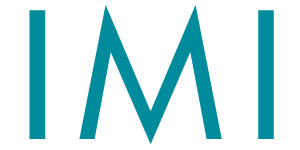“We need people who think outside the box, and who aren’t like everyone else,” says Greta Thunberg, a world-recognised 16-year old climate change activist. Greta is bold. She’s bright. She’s unafraid. And she’s unapologetic. She has Asperger’s, a condition on the autism spectrum. “It’s not a disease,” she says. “It’s my superpower.”
Greta has drawn on that very superpower to inspire millions of people to rally in more than 150 countries, driving much-needed awareness of the climate crisis.
She’s not alone. Some of the world’s greatest superstars – scientists, entrepreneurs, sports personalities, activists and more -credit their differently wired brains to their success.
The most decorated Olympian of all time, Michael Phelps has ADHD (attention deficit hyperactivity disorder). Bill Gates and Michael Jordon do too. It is believed that Albert Einstein, the world’s most famous genius, also had ADHD.
Entrepreneur Sir Richard Branson cites dyslexia as his greatest strength. Dyslexia certainly hasn’t held back superstars Will Smith, Tom Cruise, Salma Hayek, Kiera Knightley, Jamie Oliver and Daniel Radcliffe. Dan Ackroyd says Asperger’s helped to inspire his movie Ghostbusters. The list goes on.
Despite their brilliance, creativity and ingenuity, raising a child or living with a partner with neurodevelopmental differences can be challenging. We see parents and partners at their wits’ end; teachers frustrated because children do not conform to traditional methods of learning; and caregivers who are overwhelmed and emotionally spent. And we see children and adults with neurodevelopmental challenges whom feel unheard, unseen and sometimes, disregarded.
These children and adults are not broken. They don’t need fixing. The wiring of their brains isn’t wrong. It’s different. At IMI, we’re committed to helping those with neurodevelopmental differences accept or overcome the challenges they face and encourage their superpowers to flourish through a strength-based approach. Let us not suppress their unique way of contributing in an endeavour to make them fit the mould.
After all, many of those who defy the mould will pave the way for the future.
“If you’ve got a different kind of brain, and I submit that most interesting people do, that’s great…..Never lose sight of those strengths, those talents, because that is what’s going to take you to great places.”
Edward Hallowell, child and adult psychiatrist, best-selling author, and a world-renowned speaker with ADHD.
If you or a loved one has or may have a neurodevelopmental condition – ADHD, ASD (autism spectrum disorder), Dysgraphia (Dyscalculia, Dyspraxia) or Dyslexia – we can help. Our clinical psychologists can help to diagnose these conditions through a range of psycho-educational assessments, clinical observations and thorough conversations. They can work with your child to understand their learning styles, interests, strengths and unique ways of being. Our counsellors and psychologists can identify strategies, tools and resources that maximise your child’s learning and support them with the daily challenges.
Our psychologists and our counsellors firmly believe in promoting self-reliance, self-awareness, understanding and resilience. A neurodevelopmental condition is not about what you can’t do; it’s about what you can do.
What’s next?
If you're ready to start talking, our team of psychotherapists and counsellors are here to listen and support you. Simply call +852 2523 7121 or complete your request below, and we'll be in touch shortly to confirm your appointment.



